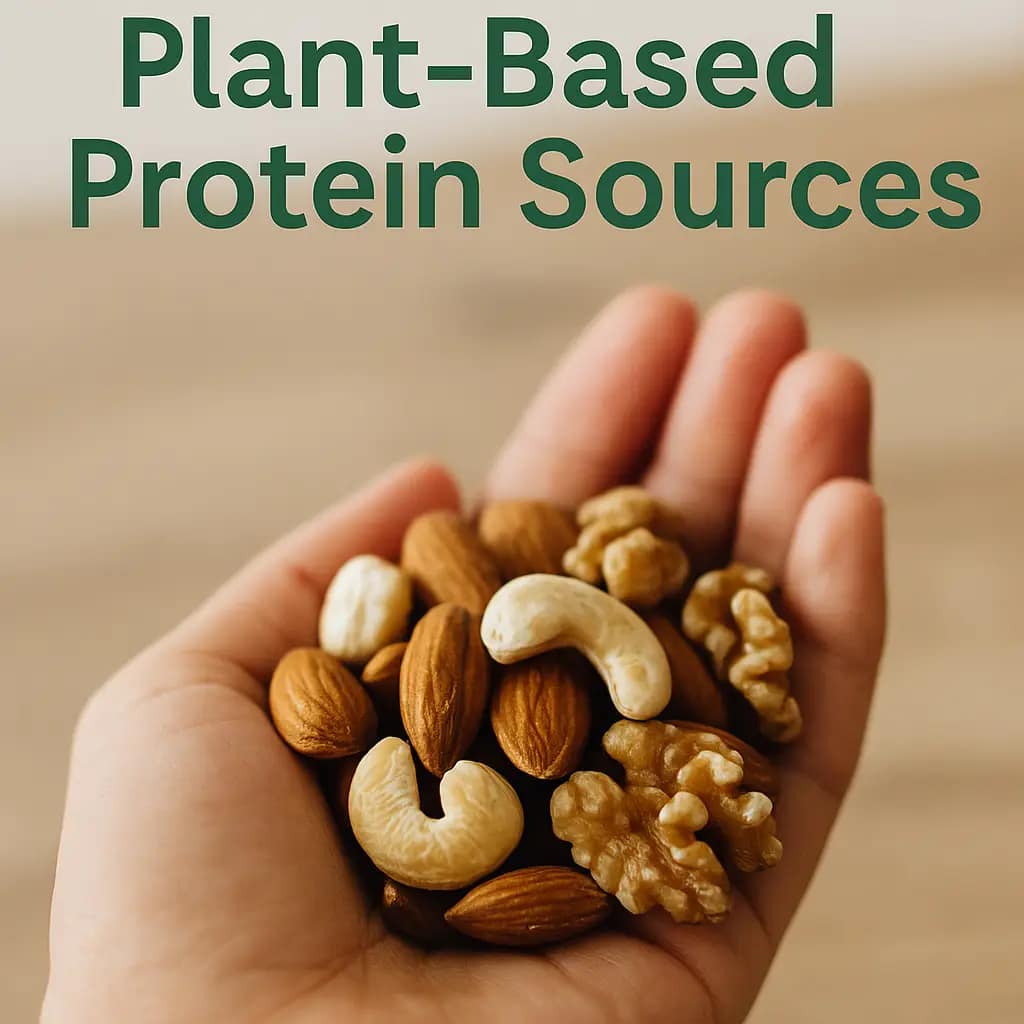The Best Plant-Based Protein Sources for Optimal Health
Protein is an essential building block for every cell in your body, playing a critical role in muscle growth, metabolism, and overall wellness. While many associate protein with meat and dairy, there are countless plant-based protein sources that are just as powerful, offering fiber, antioxidants, and essential nutrients. Whether you’re vegan, vegetarian, or simply looking to add more plant-powered meals to your diet, this guide will help you discover the best plant-based protein sources for optimal health.
Why Choose Plant-Based Protein?
Plant-based proteins provide more than just amino acids—they deliver fiber, vitamins, minerals, and phytonutrients that support heart health, reduce inflammation, and promote longevity. Studies have shown that a diet rich in plant-based proteins can lower the risk of chronic diseases like heart disease and type 2 diabetes, making it a smart choice for overall wellness.
Top 10 Plant-Based Protein Sources
1️⃣ Lentils
With 18g of protein per cup, lentils are a fiber-rich powerhouse that supports gut health and stabilizes blood sugar. They’re perfect for soups, salads, and stews.
2️⃣ Chickpeas
Also known as garbanzo beans, chickpeas offer 15g of protein per cup. They’re a versatile ingredient for hummus, curries, and roasted snacks.
3️⃣ Quinoa
A complete protein source with all nine essential amino acids, quinoa provides 8g of protein per cup and is gluten-free. Ideal for salads and grain bowls.
4️⃣ Tofu
Made from soybeans, tofu packs 10g of protein per 1/2 cup serving. It’s a versatile ingredient for stir-fries, scrambles, and smoothies.
5️⃣ Tempeh
Fermented soybeans create a nutty, dense protein source with 19g of protein per 3-ounce serving. Great for sandwiches and grain bowls.
6️⃣ Chia Seeds
Rich in omega-3s and fiber, chia seeds offer 4g of protein per 2 tablespoons. Perfect for overnight pudding or adding to smoothies.
7️⃣ Hemp Seeds
Hemp seeds provide 10g of protein per 3 tablespoons, along with healthy fats. Sprinkle them on salads, oatmeal, or yogurt.
8️⃣ Edamame
These young soybeans offer 17g of protein per cup and are a tasty, fiber-rich snack.
9️⃣ Almonds
Almonds contain 6g of protein per ounce and are rich in vitamin E and healthy fats. A handful makes a great on-the-go snack.
🔟 Black Beans
Black beans offer 15g of protein per cup and are high in fiber, supporting digestion and satiety. Use them in burritos, soups, and salads.
Debunking Plant Protein Myths
Myth: Plant proteins are incomplete. Truth: Many plant proteins (like quinoa, soy, hemp) are complete. By combining foods (like rice and beans), you can easily meet your amino acid needs.
Myth: You need animal protein to build muscle. Truth: Studies show plant-based diets can support muscle growth when protein needs are met.
Tips for Incorporating Plant-Based Protein into Your Diet
- Start with one plant-based meal per day.
- Combine legumes with grains (e.g., lentils + rice).
- Snack on nuts, seeds, and edamame for extra protein.
- Use protein-rich grains like quinoa in salads.
Want More Nutrition Tips?
Check out our previous article on 7 Superfoods to Boost Your Health for more ideas to fuel your wellness journey.
Start Your Plant-Based Journey Today
Ready to add more plant-powered protein to your meals? Subscribe to our newsletter for weekly recipes, tips, and wellness insights to help you thrive.

